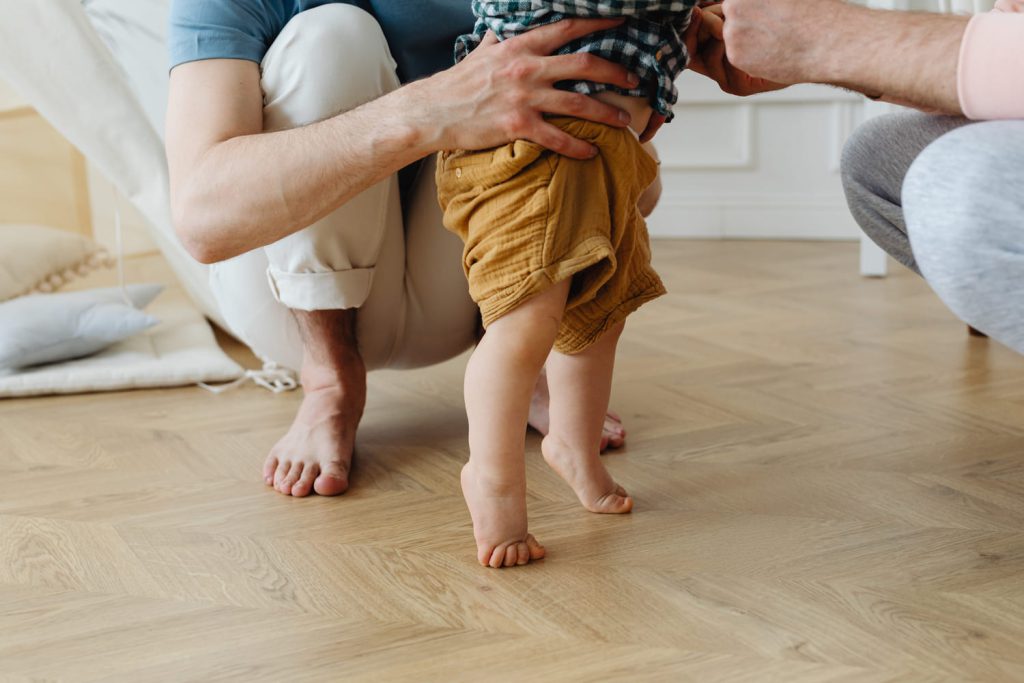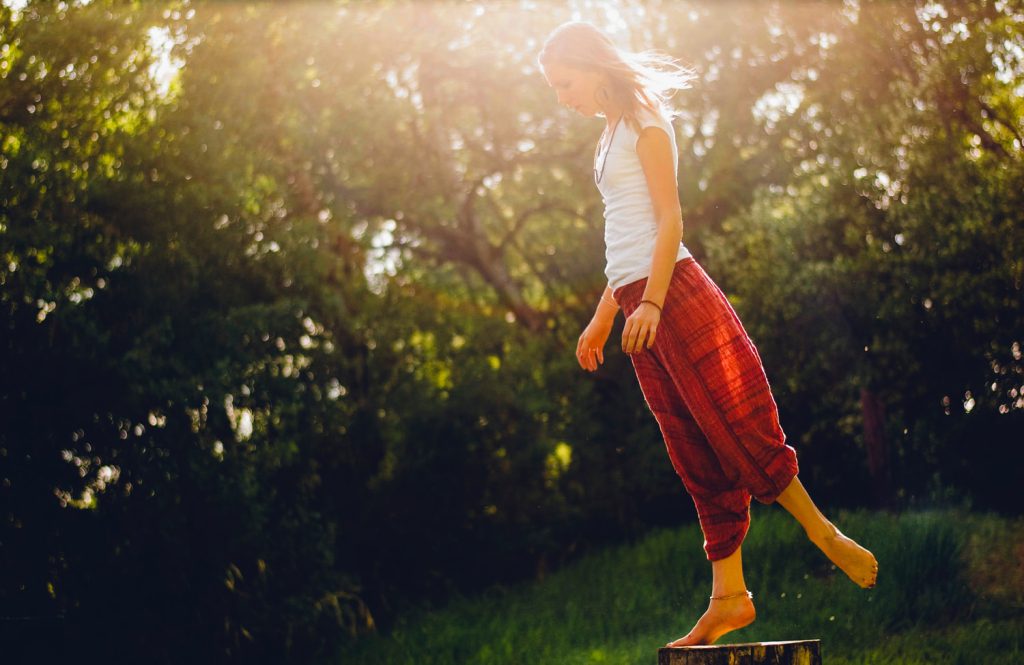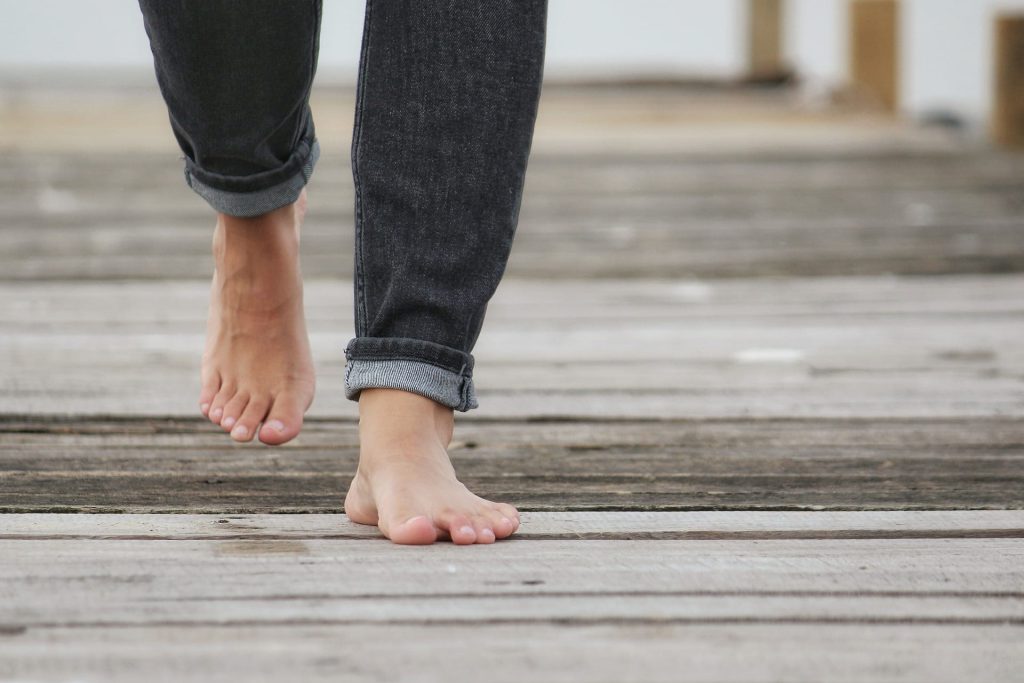Learning to walk is an important developmental milestone for babies, but some of the common practices of parents and caregivers can hinder their progress. As simple as it may seem, the act of putting on socks or shoes can compromise a baby’s natural movement patterns. The many benefits of walking barefoot for babies are clear by the vast research done on the matter, and in this article, we’ll take a look at some of these benefits, their importance, and six helpful activities to develop foundational skills.

The Importance of Sensory Information
When babies are learning to walk, their feet play a crucial role in providing sensory information to the brain. This information helps the brain coordinate movement and balance. However, when babies wear shoes or socks, that sensory input is reduced, making it harder for the brain to process and send signals effectively. That’s why it’s essential to allow babies to walk barefoot as much as possible.
Natural Foot Movements Are Crucial
When it comes to choosing shoes for babies who are learning to walk, non-slip grips may seem like a good option. However, such grips can limit natural foot movements, which are crucial for muscle and arch development. This can cause walking problems later in life. Therefore, it is best to avoid footwear that restricts natural foot movement during this critical phase, and choose barefoot or minimalist shoes, if any.
Avoid Holding Your Baby’s Hand While Walking
We all want to keep our little ones safe, but holding a baby’s hand while they learn to walk is not always the best option. Babies need to wobble and fall to learn how to use their muscles effectively, adjust their balance, and develop coordination skills. Preventing them from trial and error can make it harder for them to find their center of gravity and move their arms freely. This is crucial for maintaining balance and coordination. Conversely, when babies are always supported by their caregivers, they tend to walk on their toes, making it much harder for them to walk.
Baby Walkers Are Not Always Ideal
While baby walkers may seem like a helpful tool for babies learning to walk, they can do more harm than good. The device partially supports the weight of the baby, not allowing them to bear their own body weight. This can cause abnormal walking patterns, making it harder for the baby to learn proper walking techniques. Baby walkers tend to encourage a toe-first motion, which can hinder the baby’s ability to learn to walk naturally.
Six Helpful Activities to Develop Foundational Skills
In addition to avoiding certain common practices, there are many useful activities parents and caregivers can do to help babies develop the foundational skills necessary for walking independently.
These activities include:
- Tummy time
- Crawlers
- Games that involve weight shifting
- Practicing standing
- Helping your baby walk on safe surfaces
- Introducing a push or pull toy
It’s important to keep in mind that every baby is different and will learn to walk at their own pace. However, by allowing them to move and develop naturally, we can set them up for success in the long run.
Conclusion
Overall, it’s crucial to be mindful of common practices’ impact on a baby’s movement development. Barefoot walking and unrestricted movement are the best options for promoting natural movement patterns while avoiding practices such as holding their hand or using a baby walker can prevent abnormal walking patterns. By doing so, we can help babies develop the skills they need to walk and move confidently and healthily.


